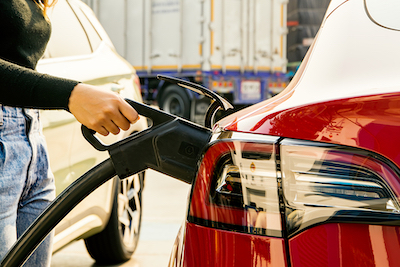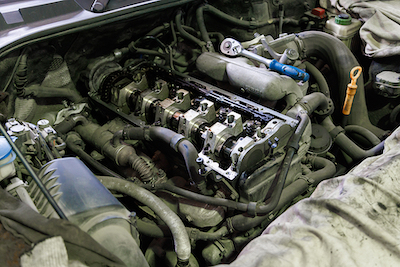In recent years, the automotive industry has been undergoing a significant shift towards electric vehicles (EVs) as a cleaner and more sustainable alternative to traditional gasoline-powered vehicles. As the demand for electric cars grows, the debate over which is better, electric or gas cars, has gained traction. This article will explore the key differences between electric cars and gas cars, considering factors like performance, cost, environmental impact, and maintenance, to help you make an informed decision about which option is best for you.
Performance
Acceleration and Torque
Electric cars have been making waves in the auto industry due to their impressive acceleration and torque capabilities. Unlike gas cars, which rely on internal combustion engines, electric cars utilize electric motors that deliver instant torque. This means that electric vehicles can accelerate faster than their gas-powered counterparts. For instance, Tesla’s Model S Plaid, an electric car, holds the current record for the fastest production car in the world, reaching 0-60 mph in just under 2 seconds.
In contrast, gas cars need to build up their RPMs (revolutions per minute) to reach peak torque, which results in slower acceleration. However, it is important to note that not all electric cars boast such impressive performance. The benefits of instant torque depend on the specific electric car model and its electric motor configuration.
Handling and Ride Quality
In general, electric cars tend to offer better handling and ride quality than gas cars. The heavy battery packs in electric vehicles are usually placed low in the chassis, which results in a lower center of gravity. This improves stability and handling, making electric cars more agile around corners and providing a smoother ride overall.
Gas cars, on the other hand, tend to have a higher center of gravity due to the placement of their engines and fuel tanks. This can result in a less balanced ride and reduced handling capabilities, especially when compared to electric cars with their optimized weight distribution.
Cost
Purchase Price
Historically, electric cars have been more expensive than gas cars, mainly due to the high cost of battery technology. However, as battery prices continue to decline, electric cars are becoming more affordable. Some electric vehicles, like the Tesla Model 3 and Chevrolet Bolt, are now priced competitively with mid-range gas cars. In addition, many governments offer incentives and rebates for electric vehicle purchases, further reducing the cost for consumers.
While gas cars may still be cheaper in some cases, the price gap is closing, and electric cars are becoming an increasingly attractive option for budget-conscious buyers.
Operating Costs
When it comes to operating costs, electric cars generally come out ahead. Charging an electric vehicle is typically cheaper than filling up a gas car’s tank, especially in areas with high gas prices. Additionally, electricity prices tend to be more stable than gas prices, resulting in more predictable long-term operating costs.
In terms of fuel efficiency, electric cars are also more cost-effective. Electric vehicles convert energy from the battery to the wheels with an efficiency of about 80-90%, whereas gas cars only convert about 20-30% of the energy stored in gasoline. This means that electric cars use less energy and are cheaper to “fuel” per mile.
Maintenance
Electric cars have fewer moving parts than gas cars, which means they require less maintenance. For example, electric vehicles do not require oil changes, timing belt replacements, or exhaust system repairs. Additionally, electric cars have regenerative braking systems, which reduce wear and tear on brake pads and rotors, leading to lower maintenance costs in this area.
However, electric cars are not entirely maintenance-free. The battery pack, which is the most expensive component of an electric car, can degrade over time and may eventually need to be replaced. The cost of battery replacement can be quite high, but improvements in battery technology have led to longer lifespans and lower replacement costs. Many electric car manufacturers also offer warranties that cover the battery for an extended period, providing peace of mind to buyers.
Gas cars, on the other hand, require more regular maintenance due to their internal combustion engines and associated components. This includes routine oil changes, air filter replacements, and timing belt changes, among other tasks. These maintenance requirements can lead to higher long-term costs compared to electric cars.
Environmental Impact
One of the primary reasons consumers consider electric cars is their reduced environmental impact. Electric vehicles produce zero tailpipe emissions, which means they do not emit harmful pollutants like carbon dioxide (CO2), nitrogen oxides (NOx), and particulate matter. This can help improve local air quality, especially in urban areas where traffic congestion contributes to high levels of air pollution.
However, it is essential to consider the source of electricity used to charge electric cars. In regions where electricity is generated primarily from renewable sources like solar or wind, electric vehicles have a much lower overall environmental impact. But, in areas where electricity comes mostly from fossil fuels like coal, the emissions associated with electric vehicle charging can be higher. Nonetheless, even in these cases, electric cars tend to be more environmentally friendly than gas cars, as they are more energy-efficient and produce fewer emissions overall.
Gas cars, by their nature, produce tailpipe emissions that contribute to air pollution and climate change. While modern gas cars have become more efficient and cleaner due to advancements in engine technology and emission controls, they still produce more emissions than electric cars on a per-mile basis.
Infrastructure and Range
One of the primary concerns for potential electric car buyers is the availability of charging infrastructure and the range limitations of electric vehicles. While electric car ranges have improved dramatically in recent years, with some models now offering over 300 miles on a single charge, range anxiety remains a concern for some drivers.
The charging infrastructure has been expanding rapidly, with new charging stations being installed across the world. However, in some rural areas, charging options may still be limited compared to the ubiquity of gas stations. This can make long-distance travel more challenging for electric vehicle owners.
Gas cars have the advantage of an extensive and well-established network of gas stations, making refueling quick and convenient. Additionally, gas cars typically offer longer ranges than electric vehicles, making them more suitable for long-distance travel without needing to refuel as often.
Is There a Winner?
In the battle between electric cars and gas cars, there is no one-size-fits-all answer. The best choice depends on your priorities, driving habits, and personal preferences. Electric cars offer numerous benefits, including better performance, lower operating and maintenance costs, and a smaller environmental impact. However, they may not be the ideal choice for everyone, especially those who frequently embark on long road trips or live in areas with limited charging infrastructure.
Gas cars, while less environmentally friendly and potentially more expensive to maintain, offer the convenience of a vast refueling network and longer ranges. Ultimately, the decision between electric and gas cars should be based on your specific needs and circumstances. As electric vehicle technology continues to improve, and charging infrastructure expands, the advantages of electric cars will likely become even more compelling, making them an increasingly attractive choice for many drivers.













